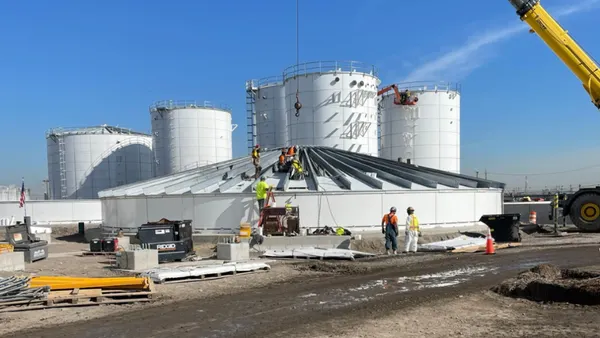Dive Brief:
- President Donald Trump, Environmental Protection Agency Administrator Scott Pruitt and several senators met in the White House late last week to discuss the Renewable Fuel Standard (RFS), as reported by Politico. "The President confirmed his commitment to RFS and his support for our farmers and energy workers. He understands there are differing views on this issue, and the Administration looks forward to working with all the stakeholders toward a mutually agreeable path forward," White House Spokesperson Hogan Gidley said in an email.
- A group of Republican senators attending the meeting released a joint statement, saying the meeting was productive in working toward "how to fix the RFS compliance problem in a way that protects both refinery workers and corn farmers."
- During testimony before a congressional committee that same day, Pruitt said he thought that the RFS needed some work due to issues of fraud, enforcement and fluctuating prices for Renewable Identification Numbers (RINs). Pruitt also said that the agency would be submitting a report to congress on the environmental impact of the RFS.
Dive Insight:
The point of contention for the RFS lies between Midwestern lawmakers who favor the rule, as it benefits farmers, and oil-state senators, who believe it can be detrimental to fossil fuel mining. This back and forth has led to political drama and, for a time, created uncertainty for the fate of the RFS.
The initial proposed volume standards were significantly lower than the current volumes, and industry groups were quick to push back. The additional political pressure appears to have worked, as the finalized volumes are higher than initially proposed. The American Biogas Council released a statement noting their approval of the final volumes, but that they hope "the EPA will take stronger steps to support the growth of industries" involved in renewable fuel.
Landfill gas-to-energy projects and anaerobic digesters are eligible under the RFS for RINs, categorized as cellulosic fuel. The volume of required cellulosic fuel has been cut by the EPA, potentially harming waste-sector energy projects like AD.











